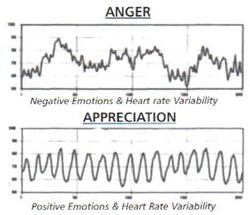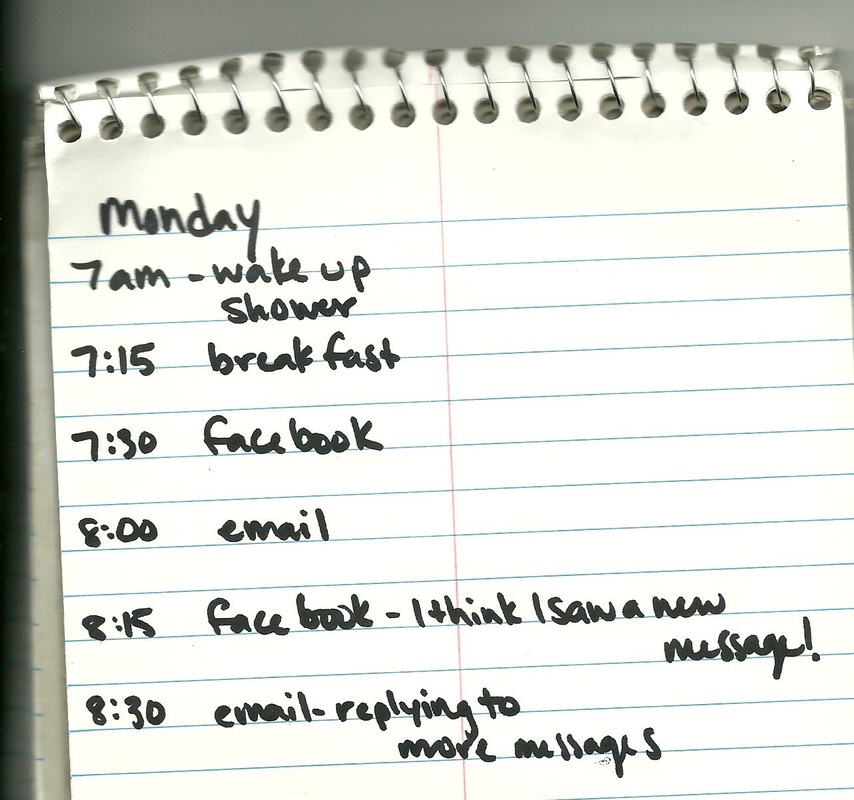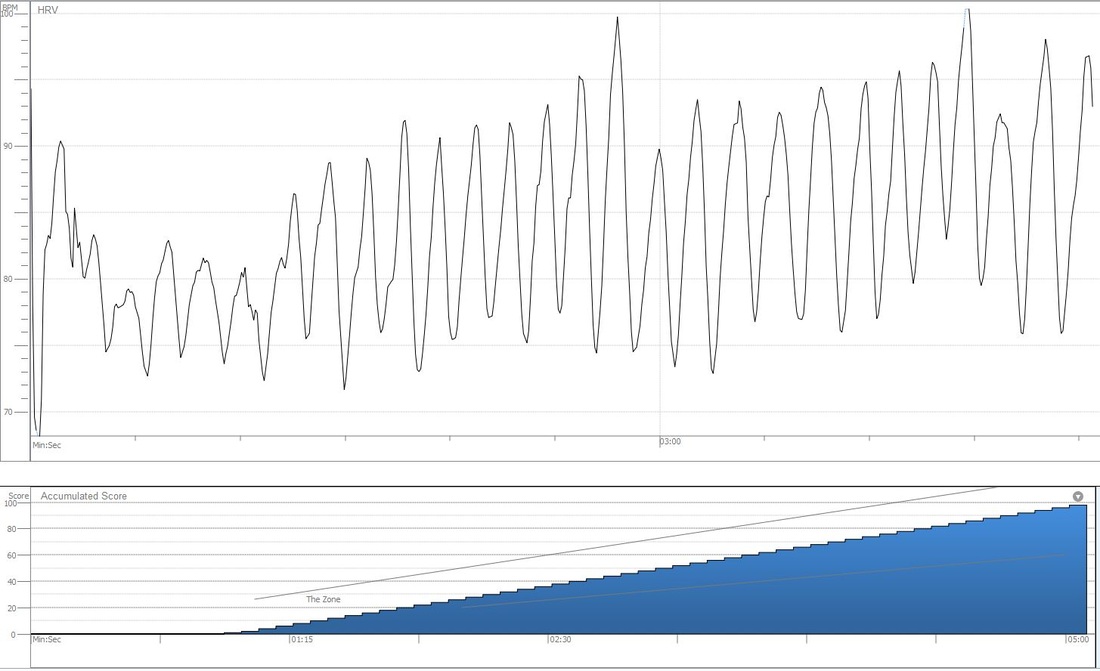|
Some say "no pain, no gain." I say: if it hurts, you're probably not doing it right. If you're exercising and it hurts, that can mean serious trouble. If you're experiencing emotional pain in you're life, that can also mean serious trouble. You may know some of these common effects of stress building up in your body and in your life:
These are good to know. They are some of the more apparent results of a stressed out life. But here are some you may not associate with stress:
Now, am I saying that just about everything is caused by stress? Nope. But living a high stress life with little outlet and ability to positively deal with stressful situations sets us up for failure. Our health is compromised, our relationships are strained and our general outlook on life is worse. Many of the above symptoms can be caused by a variety of factors, whether or not stress is present, so be sure to get a full check up and discuss any lab work that would be helpful for you and your doctor to best understand your health issues. A lot can be learned from simple blood tests and saliva tests (yep, pretty much just spitting in a test tube)- it's important to not overlook any potentially serious medical condition when working on balancing your physical and emotional health. I am here to answer any questions you have about this topic- you can comment on this article or email me directly. To your good health, More articles on stress and you:
Stress: what is it good for? From overwhelmed to overjoyed Stress vs. Well-Being: how do you measure up?
1 Comment
Yep, I’m anti-grazing. “I need to eat every 2 hours, or I just faint, get grouchy, become homicidal, start eating dirt, etc.” I’ve heard it countless times. I used to say it myself. But where did we ever get the idea that that was normal? Let alone healthy? Feeling like you will pass out or go crazy if you don’t eat every two hours is not healthy. I don’t let that slide. Why? Why do I care so much because you eat kale and grass-fed lamb and organic walnuts every two hours? Because I care about you and your hormones. Yes, it’s back to hormones again. This time, those responsible for the endless grazing cycle loop are insulin and cortisol (and also a dozen other digestive hormones and other neurochemicals). A major part of the grazing addiction is blood sugar instability. Blood sugar roller coasters, lead to off-the-wall insulin responses and set you up to need to graze constantly. A stable, healthier blood sugar response, on the other hand, allows for the best use of calories, including fat burning. That means grazing (and their wacky blood sugar patterns) can actually lead to weight gain- the very thing that grazers often are trying to avoid! As I explain it in ‘slim down & happy up’: insulin excess + insulin spikes = belly fat Guess what else happens when blood sugar responses go from crazy-roller-coaster to nice-and-smooth? Stress goes down because cortisol (the stress hormone) will decline naturally. Wanna learn how to break the grazing cycle and reduce stress? An added bonus just might be losing a little belly fat in the process. Registration is now open for ‘slim down & happy up,’ my way to target weight loss through stress reduction (and get those pesky hormones under control for once!)- so sign up now while you still have time. If you aren’t already on my contact list, sign up and receive a private discount code for this current session. We begin in a few weeks- don’t get left behind! Here’s to helping you de-stress, What do you never seem to have enough of? Time. Money. Matching socks. Ok, well I can only help so much; those socks are up to you. But how about your time? Yeah, you've heard of time management, but doesn't it seem like you're at the receiving end, being managed by some other force? A force which apparently hates the thought of you having time to yourself, of ever feeling relaxed. So let me shed a little light on this conundrum. Let's take back the reigns to your calendar, one step at a time. First, it's time to face the hard facts. Let's just go ahead and rip off this band-aid. Step One: time for a Time Audit Your homework, should you choose to accept it is to track your time. All your time. All your activities. Try doing this consistently for a week, but even a few days will be quite revealing. (here's a few apps for fool-proof, forget-me-not time tracking, here, here and here) Attempt to track all your waking hours, noting everything that took more than a few minutes of your time. What do you see? Any patterns? Anything surprising? Getting a few days or more under your belt will help you get the best picture of how you spend your time. Like money, time can be spent, invested, wasted or saved. Are there areas where you could be spending your time a little more wisely? Step two: craft your own inner time snob After you have diligently tracked for a week or so, let the next week be all about time analyzing. Scrutinize your time spent in every area of your life. It's all about values and priorities. Here are some areas where I help my patients find more time: -- time for self care (exercise, sleep, hobbies, play) -- time for cooking healthy meals -- time for rest, restoration, nurturing and downtime when necessary And where are we going to find all that time? It doesn't just grow on trees, ya know. Well, let's run through an example. Say you can't find the time to spend an hour cooking for yourself on the weekends, but you want to prepare a few batches of food for quick-to-reheat workweek lunches and dinners. (in slim down & happy up, I share with participants my exact steps to minimize kitchen time for maximum meal impact). Alright... where are we going to find an hour? How about cutting email time from six (or is it twelve?) times a day to three? Or limiting facebook time to a twice a day indulgence (or better yet, just dump that app from your phone and remove the impulse entirely). The success of time re-organization comes from you. Your input and your investment in its success. If you take a keen eye to how (and where) you use your time, you'll be surprised where all your free time is hiding out. Step Three: staying on top of it all What's a sure-fire plan for failure? Lack of planning, and being stressed out. What can help both of those? Having a game plan, of course. Have a deadline, project or other event looming on your calendar? Then it's time to bring your best inner time snob and stay riding that to-do list wave (it's better than drowning in responsibilities, after all). As someone who pretty much always has a full schedule, I definitely have to practice what I preach here. Since the last thing I want to do is add a huge list of tasks to an already bursting-at-the-seams schedule, I go into much more specific detail about my approach and strategy to do it all while keeping sane (and stress-free, in fact!) in slim down & happy up. The fall session is just about open for registration, join us on this next round and find a healthier lifestyle for yourself and your family. I'd love to hear what kinds of creative time planning you use, so please leave a comment below. To your good health (which includes plenty of rest and play time!), Haven't heard? Join me for slim down & happy up, a unique stress-reducing and healthy weight-achieving program crafted especially for you, the busy lady. More great stuff by me: Just who do I think I am, anyways? Bulletproof balance (make room for this in your schedule and you won't be sorry!) photo credit: BeverlyLR
 I love HeartMath. It's the only computer program that I can think of that I'd call a life saver. Others are useful, helpful or necessary for business operations. But not live savers. HeartMath is. It's for real. Myself and all my formerly-stressed-out patients who have experienced the biofeedback training using the HeartMath system can attest to this. At first, there was the emWave as a desktop or handheld version. I use the desktop version with myself and my patients (I do practice what I preach!). I usually have one or two handheld devices on hand for those patients who are most eager and committed to relieving their stress that they enthusiastically continue biofeedback training in their own time away from my office. Then a month ago I learned about the Inner Balance Sensor: the next generation version for the iPhone, iPad and iTouch. Check out the video all about it, and get brushed up on this innovative technology in under 3 minutes. It turns iPhones into biofeedback devices. That is seriously cool. Anyone can now access and use this technology in their daily lives. I've long been looking for a way to bring my in-office biofeedback sessions on the road. It's difficult to explain in words a concept that's instantly understood by just watching and experiencing biofeedback in action. Now when I'm out and about at meetings, presentations and other public events, I'll be able to fire up my iPad and have a scaled-down version ready to demonstrate on demand. I recently saw that Dave Asprey, the Bulletproof guy, recently endorsed the Inner Balance Sensor as well as provided a very comprehensive overview of how it works. He's known for dismantling the entire way that we eat, and reconstructing his Bulletproof diet based entirely on research findings for optimal human performance and activity. Check out his diet guidelines, they're pretty spot-on. As Dave Asprey's writings can be trusted to be firmly rooted in the scientific research, his articles are well worth a read: How to Biohack Your Courage, How HeartMath Training Helps You Live Longer, and Six Ways To Hack Your Nervous System. His theme is "biohacking" your body's physiology through the use of science, if you can't tell.
Well, that's my exciting news today, though there's much more in the works. But that will be exciting news for another day. To your good health,  Scanning my bio page, and you can sum up my education and experience within a few seconds. What you won't know is "Why?" Why do I do what I do? And ... what right do I have to tell you and everyone you know that stress isn't a given. I might not even know you, your aggravating boss, your mother who never leaves you alone, your kids who drive you up the wall with worry. None of it. I may not know anything that's going on in your life. So, just why do I think I am? Maybe it's because I'm the eldest child in my family. The stereotypical bossy older child. Don't ask my younger siblings- it's all lies. I'm motherly and nurturing not bossy. Or a matter of perspective, whatever. So, I get to tell you how to be healthy because I'm a doctor. I get to tell you how to do it from a really common sense, healthy approach which is supportive to your body, mind because I'm a Naturopathic Doctor. But why do I think you can ditch your stress? Because I've done it. I've crossed over that bridge- or maybe I choose to cross over again and again every day of my life. I used to be a nervous wreck. Really. You know the type. I was stressed out and living on my last nerve on a daily basis. I was a living mascot of those dorky "I have one nerve left, and you're on it" T-shirts, or seen here in chihuahua form. Or maybe it's not a chihuahua, I don't know (the only dog categories in my mind are: big, small, friendly and growling). Part of my stressed out picture comes from the fact that I've always been "busy." From childhood on, busy, busy, busy. You know, the kid who's in everything, and the co-ed who doesn't have a minute of down time. I've always been a big proponent of getting and keeping your priorities straight, so in addition to the work and school schedule, I've also always worked in exercise, family time, volunteer time and other activities. No time for me, no peace and quiet. And what did this big bundle of messy nerves look like? Well, on the outside, not too bad. On the inside, constant tension, stress, anxiety and unrest, a history of heart palpitations and sometimes worse. There's been the occasional panic attack (it's always fun when you feel like you can't breathe) and one week of anorexia. That was a real blast. Too sick to my stomach with anxiety to eat, too hungry to stop thinking about food. I'm no hero. After a week, I tried getting help from my doctor after being too nerve-shocked to eat for far too long. He recommended Ensure. Thanks, but no thanks. After life circumstances became less crazy, my condition improved.  Jaggedy = bad. Smooth = good. Jaggedy = bad. Smooth = good. Fast-forward to the middle of my internship years. One day while working with a patient's history of anxiety and panic attacks, I got some first hand experience with a weird-sounding computer program. HeartMath. I had heard about this "HeartMath" thing the year prior during a Cardiology lecture. The same lecturer was now my attending physician and was training me in how to use it with patients. On my first go-around in class, it sounded like this breathing and self-guided visualization thing that somehow helped with heart disease and anxiety. And, yep, that's pretty much it in a nutshell. I practice what I preach. It didn't take long after learning how to use HeartMath with patients for me to experiment on myself. And the effects I first initially and every day since is what propels me to use it as a key part of my clinical practice. Bonus for me- no more being stressed out all the time, and definitely no panic attacks and upset stomach. Every day that I use the HeartMath system, I can see myself building up my internal reserves. Stressed to relaxed. Upset to calm. Tired to energized. And I can feel the effects whenever I do it, computer monitor or not. In the car, in the shower- there's nothing more portable and easy to use any time than your thoughts and your breath. Here's an actual screen capture of a session I did a few months ago: This is a six minute session. You can see the raggedy-jaggedy-ness on the left (= low coherence). This pattern smooths out and from a minute in until the end there is a much more smooth sine wave-like pattern (= high coherence). That's good. That's what you want. That's what is the actual key to reducing stress. The bottom graph is internal coherence built up over time. More blue equals less stress.
This is just one of many tools I use for myself and others who are stress-prone, but it's a very foundational tool nonetheless. I just wouldn't have the impact that I do in helping all us stress cases to relax and unwind. It creates real, appreciable change to permanently alter our stress response. I love the many uses of HeartMath. For some I use it to curb a stressaholic's tendency to freak out. For others it's an immediate way in the office to snap someone out of acute anxiety- this will even work during a full-blown panic attack. How great is that? If you know someone who's a stressed out mess, send them my way. I am a guide with a tried and true map which will help them leave the Land of the Last Nerve and arrive at Chill City. Won't you join me? That's who I am. I am here, happy and eager to help. If you want to be Happy, Healthy and Wise, let me help you with two of these three (wisdom not included).  In an ever-developing expansion of my reach on the internet, PDX Holistic has featured Stress: what is it good for? At PDX Holistic, you can find my directory listing, find other holistic practitioners in Portland and get up-to-date articles and information straight from alternative medicine practitioners such as myself. Absolutely nothing. Ok, so that's not entirely true. But 99.9% of reactions to stress nowadays are harmful and unnecessary. Here's a whirlwind tour on what stress is doing to you and your body, why it sucks, and what you can do about it to have a happier, more kick ass life. Most of us have heard that the physiologic (body) response to stress has evolved to run away from woolly mammoths or saber tooth tigers or something along those lines. Well, ok, great, but we were also club-swinging unibrow-sporting troglodytes (word of the day for ya). Things have changed. So why on earth would morning traffic and work deadlines cause the same effects in your body as a near-death experience as the hands (or claws?) of a neolithic lion? Because, for the most part, deep deep down in your genes and cells, not much has changed. You're still living, breathing and metabolizing like its 1999. B.C that is. And what is stress and who defines it anyways? What cranks one person's stress-o-meter up to 11 (public speaking anyone?), is exciting, challenging and enjoyable to another. Well, the million dollar answer is: that person, thing, event or activity that is "stressful" is only stressful because you're responding stressfully to it. Ok, before I go too esoteric and off into "what is is" land, let me break it down another way: stress as a word was not created to describe a human physiologic response. It came from civil engineering, and only afterwards did biology researchers take the idea and apply it to the human body. Stress is a force from the outside that is exerting its effects in you (or a bridge, but why split hairs). Or to quote the never-wrong wikipedia, "stress is a measure of the internal forces acting within a deformable body." Sexy definition, right? So something is trying to deform your body (boss breathing down your neck, kids going nuts, no time to yourself) and stress is the amount those things are affecting you, internally. But. But. The real kicker of all this is you have a choice in the matter. You can choose how all those external forces affect your internal forces and deform your body. (ok, I'll stop with the engineering talk) There are many ways you can respond physiologically (and emotionally) to potentially stress-inducing events and interactions. How do you respond? Crack like an eggshell? Crumble like saltine?
How do you want to respond? Bounce back from any hardship like a superball? Nonchalantly and gracefully move from one project to the next like a slinky? You may have minimal influence over commuter traffic, paying the bills and having a ever-expanding to do list with never enough time-- but what you do have maximal influence over is your response. This is more than a matter of "just think good thoughts" or "quit your job and move to Fiji" (though if you're looking to take a concierge doctor to Fiji with you, let me know). I work with people to build up their internal reserves so that they can react to life more like a slinky and less like an eggshell. Getting and maintaining that attribute is a process (unless you do just move to Fiji)- but one that when working together, I have always seen stress diminish, anxiety dissolve and positivity and resilience grow in their place. And from that standpoint, you can take on the tigers and bosses without losing your cool. To your good health,  Gusts, flurries and dustings of snow. It's Portland, so we don't actually own snow shovels. Nine times out of 10 the snow doesn't even stick. And we like it that way, or else we frequent Mt. Hood. My question is, how does the snow affect you? Are you running out the door to make snow angels (well, don't do that right now, or they'd be sludge angels) or do you curse the weather and all the bad drivers it brings?  For most of us in town, an inch or two is enough to completely change our day, our schedule and our routine. Schools are cancelled, trips across town are suddenly monumental tasks and businesses are suddenly and inexplicably closed (hey, they don't want to drive in the snow with Portlanders any more than you do). Not all work grinds to a halt. Many must continue trekking to work and raising an already high level of work-related stress to nearly unbearable levels. So before you get stuck in the next "big" snow, being pulled every direction by demands (go in to work and finish the project or go sledding on bunny slopes?), take a minute to recognize and readjust your expectations to living a life in overwhelm mode. Do you feel:
These are some of the most common expressions of an overwhelmed life crumpling under time pressure and demands. Don't resign yourself to living under these constraints, there is a way out- I promise. Read more here and let's chat soon.
To life, health, and warm cups of tea, |
Archives
June 2024
Categories
All
|
about the doc |
patient infocontact |
|
Privacy Policy
© Copyright 2011-2024, Dr. Angela Cortal ND LLC website content is for educational purposes only and is no substitute for medical advice (see the Terms of Use Agreement for this site), you must establish a doctor-patient relationship to receive that! |











